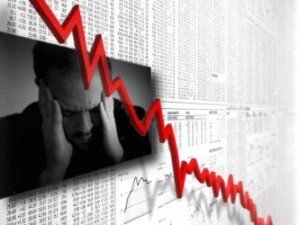New research suggests that over 1000 people have committed suicide due to the 2008-2010 economic recession in the UK
 Drawing on national health and unemployment databases, UK researchers have calculated the number of excess suicides attributable to the financial crisis by looking at the total number which were over and above historical trends. Their research is published today on bmj.com.
Drawing on national health and unemployment databases, UK researchers have calculated the number of excess suicides attributable to the financial crisis by looking at the total number which were over and above historical trends. Their research is published today on bmj.com.
They estimate that 846 more male suicides and 155 more female suicides took place between 2008 to 2010 than would have been expected if previous trends had continued.
The authors do caution that the study design “cannot ascertain whether the association between job loss and suicides is causal”, but go on to note that “the strength of the effect size, timing, consistency, coherence with previous research, existence of plausible mechanisms, and absence of any obvious alternative explanation suggest that it is likely to be.”
The authors say that the analysis has several implications for those seeking to protect the most vulnerable in the ongoing economic recession and “although the initial economic shock of the recession does increase suicide risk, policies that promote re-employment may reverse this trend”.
Our colleagues at the UK SMC collected the following expert commentary. Feel free to use these quotes in your reporting. If you would like to contact a New Zealand expert, please contact the SMC (04 499 5476; smc@sciencemediacentre.co.nz).
Professor Keith Hawton, Centre for Suicide Research, University of Oxford, said:
“The findings of the study by Barr and colleagues are of considerable interest. They show that in males the number of suicides in England is associated with the level of unemployment, with a marked increase in suicides in 2008 at the beginning of the economic recession. They also show that suicides increased more in regions with greater increases in levels of unemployment. The authors have estimated the possible size of the increase in suicides in 2008-10 that might be attributable to unemployment.
“An increase in suicides at a time of economic recession is not a new finding, having been reported, for example, for the Great Depression of the late 1920s, early 1930s, and for the economic downturn in the South-East Asian region during the 1990s. However, correlations of this kind need to be interpreted with caution. A correlation between rates of unemployment and rates of suicide at the population level does not necessarily imply a causal link between unemployment and suicide (although of course this would be in keeping with such a relationship). Secondly, the data in this study do not indicate whether the rise in suicides is accounted for by increased numbers of suicides in unemployed people. They could, for example, be due to increases in other groups in society, although this might still be related to the economic recession. Finally, assuming that the association indicates a causal relationship, the findings do not tell us why people who become unemployed at times of recession are at increased risk. More detailed studies of people who die by suicide at times of recession would be needed to elucidate this.
“Thus, while these findings are of considerable interest and certainly raise concerns, they must be interpreted carefully. It is also important that they are not over-dramatised in a way that might increase thoughts of suicide in those affected by the recession.”